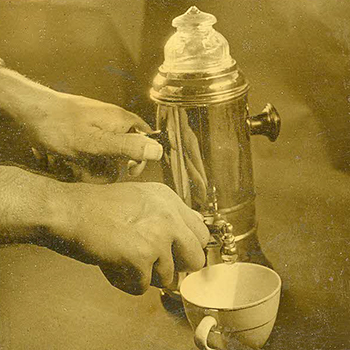The discovery of coffee is quite generally accredited to Africa, although the earliest cultivation is traced to southern Arabia. Coffee grew in Africa only in a wild state until fairly modern times, when it began to be developed there on a production basis. Coffee probably derives its name from the original Arabic Qahwah, indirectly through its Turkish form Kahveh, although some etymologists connect it with the name Kaffa, a town in southwest Ethiopia reputed to be the birthplace of coffee.
The origin of coffee is vague and obscure, but its history is rich in legend. One of the most accepted tales surrounding the discovery of coffee about 850 AD is that of Kaldi, an Arabian goat herder. Bewildered by the queer antics of his flocks, Kaldi is supposed to have eaten berries from the evergreen bush on which the goats were feeding and, overjoyed at the feeling of exhilaration that he experienced, has been pictured in legend as dashing off in excitement to proclaim his great find to the world. The physiological action of coffee in dissipating drowsiness was soon discovered and taken advantage of in connection with religious services of the Mohammedans, but the strictly orthodox or conservative section of the priesthood claimed that it was an intoxicating beverage and therefore prohibited by the Koran.
